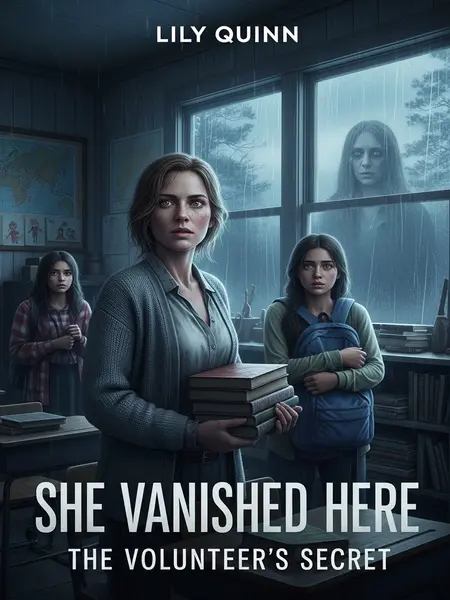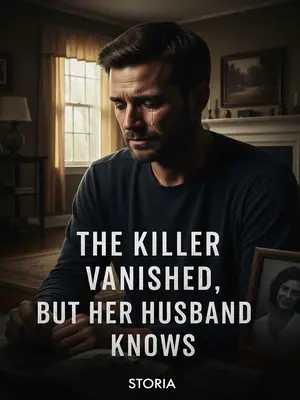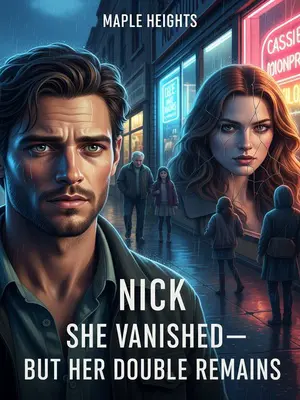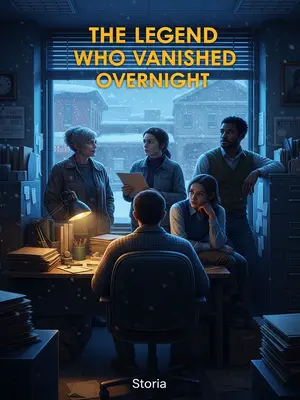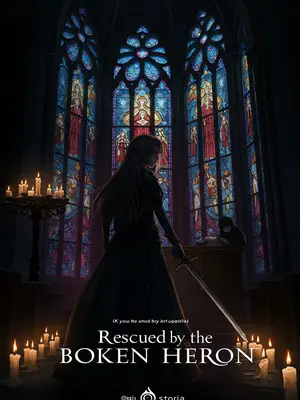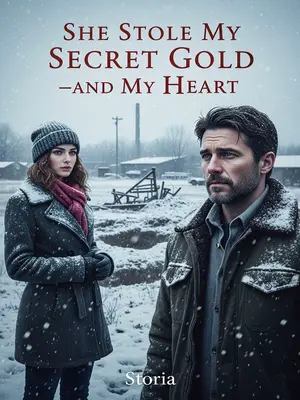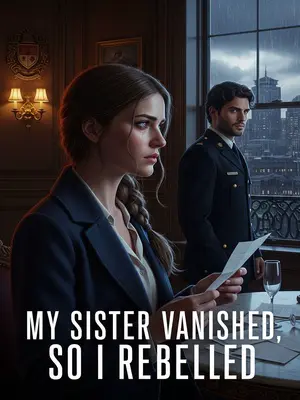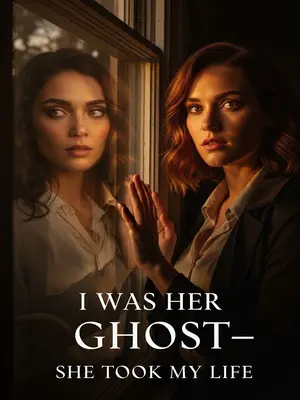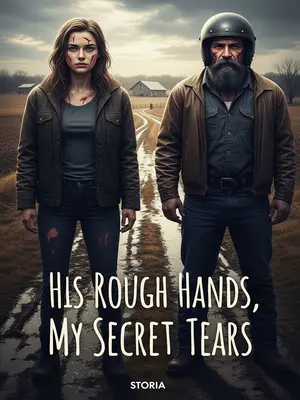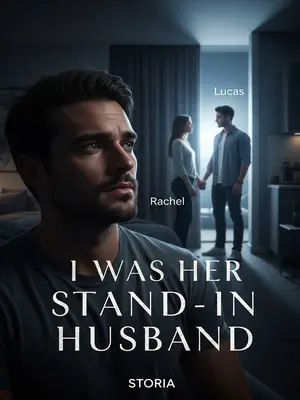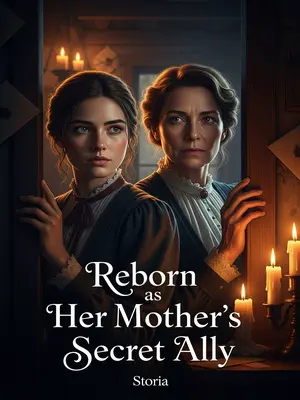Chapter 1: A Knock in the Night
I went to the Appalachians to teach as a volunteer. The folks there had a kind of warmth that felt bone-deep, the kind that gets under your skin and lingers. When they shook your hand, it was strong and honest, and their laughter carried on the breeze, mixing with the scent of sun-baked grass and woodsmoke.
Honestly, I’d never felt a welcome quite like that. I swear, it was something else—these mountain folks would look you straight in the eye, steady and slow, like they had all the time in the world. It made you feel like you belonged—at least for a minute—even if deep down you knew you didn’t. There’s just something about that place: the air always carried a hint of woodsmoke and wildflowers, and sometimes, just for a heartbeat, it almost made me forget I was just the outsider here, passing through. Wild how quickly you can lose yourself in a place that isn’t yours.
Then, one night—a little girl knocked on my door.
"Miss! You need to run!"
Her voice was shrill and piercing, slicing through the hush of the night like a fire alarm in a church. I’ll never forget the sound of her tiny fists hammering the wood—desperate, frantic, like she was trying to save me from something so big and awful she couldn’t even name it. The fear in her voice was real. I could feel it, even if I didn’t know what she was so scared of.
There was no cell signal in the mountains. On my first day, another teacher and I had to hike up the ridge just to get a single bar and let our folks know we were alive, shouting into the wind:
"We’re fine! Don’t worry! Folks here treat volunteer teachers real well."
We had to scramble up past the last scraggly row of pines, our breath puffing white in the chilly morning, just to catch a whiff of a signal. I can still hear Savannah’s laugh bouncing off the valley as we stretched our arms to the sky, phones held high, both of us grinning like fools. It was straight out of some old coming-of-age movie—two city girls hollering into the wind, promising our moms we weren’t about to get eaten by bears or mountain lions. Swear, we almost believed it ourselves.
And honestly, they meant it. When we rolled in that morning, a whole crowd was waiting by the old church sign. The county board chair, driving a battered old pickup, called out for everyone to toss our luggage in the truck bed, bowing a little as he stuck out his hand:
"Miss Hall, Miss Rivers. We’ve got a meal waiting for you—hope you like it."
The church sign was faded, white paint peeling off in big, curling strips, but someone had taken the time to hang fresh wildflowers on the post. The air was thick with the smell of biscuits and fried chicken floating over from the fellowship hall. I felt a little ridiculous in my city sneakers, but when Mr. Carter—the board chair—tipped his hat and grinned, it was impossible not to smile back. Sometimes, a simple gesture just knocks the nerves right out of you.
The town was poor. Only two pickups: one for our bags, one for us. The locals took their time with their words, careful and curious:
"Where you girls from?"
Their voices had that soft Appalachian lilt, every word slow and weighted, as if they were sizing us up—wondering if we’d stick it out or run home the first time things got rough. It was a kind of careful hospitality, like they didn’t want to scare us off. I could feel their eyes on us, measuring, maybe hoping we’d last the summer.
Miss Rivers—Savannah Rivers—was from Cincinnati too—same school, even. We’d planned this together.
Savannah had that Midwest warmth, the kind that made people trust her right away. We’d met in a campus coffee shop, both of us signing up for the same teaching program. Both chasing the idea that we could make a difference. She’d always dreamed of seeing the world beyond Ohio, and me? I guess I just wanted something real. Something that mattered.
After we’d exchanged a few polite hellos, a middle-aged woman pushed her way through the crowd, holding a little girl by the hand. The girl’s dress was patched, her hair dull, but she was spotless—someone had taken real care with her.
The woman’s hands were rough, nails chipped and stained from farmwork. She looked at us, chin lifted—proud, but wary too, like she was wondering if we’d judge her. The little girl clung to her side, eyes wide and solemn. Her shoes were too big, but they’d been scrubbed until they shone.
"Which college are you from?"
"Ohio State."
I caught the flicker across her face—like she’d expected something fancier, or maybe she’d never heard of Ohio State. Either way, I saw her shoulders drop a notch, just enough to notice. The tension in the air eased a little.
Her face shifted again. A man in the crowd nudged her aside and piped up with a grin:
"Oh, that’s a real good school."
He said it with a kind of pride, like our being there made the whole town feel a little more important. I saw the crowd lean in, hungry for stories from the world outside the mountains—but not too hungry. They didn’t want to push too hard, not yet.
I pulled a granola bar from my pocket and offered it to the little girl. It was hot out, so the chocolate chips had melted, sticking to the wrapper.
"Here, sweetie."
The wrapper crinkled in my hand, gooey with melted chocolate. I crouched down to her level, hoping to make her feel safe. Her eyes darted to her mother, searching for a nod. That tiny moment said everything—trust is a big thing here, and I felt it settle heavy on my chest.
The girl looked to her mom, and only when she got the nod did she take the bar:
"Thank you, ma’am."
Her voice was so quiet I almost missed it. She held the granola bar like it was treasure, her fingers shaking just a bit. For a split second, I saw the world through her eyes—strangers showing up, gifts handed out, all those grown-up expectations pressing down on her skinny shoulders.
Her hand was thin, marked with faded scars. When she caught me noticing, she tucked it behind her back. A neighbor called out:
"Katie, you gotta be careful when you help your grandma cook. Look at those hands."
The woman’s voice was gentle, but there was worry under the words. I wondered what kind of kitchen left marks like that, what kind of life made a child’s hands look so old. Those scars weren’t from one accident—they were the kind that come from years of burns and cuts. Made me wonder what else she’d survived.
"Okay."
Katie’s answer came quick, like she’d said it a thousand times before. She ducked her head, cheeks pink, and I realized she was used to people noticing but never really asking. There was a kind of toughness in her—a quiet, hard-earned resilience you only see in kids who’ve had to grow up fast.
After Savannah and I finished calling home, we headed back and saw the board chair, trailed by a few young guys lugging thermoses and armfuls of quilts.
The sun was setting, painting the hills gold and purple. The men’s boots crunched on the gravel, arms loaded with thick, handmade quilts. I could smell cedar and mothballs, and I caught myself wondering how many winters those blankets had seen, how many stories they’d been part of.
"Miss Hall, Miss Rivers, it gets cold here at night. You probably didn’t bring heavy blankets, so we brought some for you. They’re clean, don’t worry."
He grinned, a little sheepish, like he thought we might say no. Those blankets were patched and mended—family heirlooms, I could tell. And it felt like we were being woven into their story now, thread by thread.
We thanked them and took the quilts. When we went inside, the chair followed. I nudged Savannah to take the quilts in while I lingered at the door to chat a bit:
"Don’t worry, Mr. Carter. Savannah and I will take good care of the kids."
I tried to sound confident, even though my nerves were jangling like windchimes in a storm. Mr. Carter’s eyes softened, and he nodded, the kind of nod that felt like a blessing. There was something solid about him, the way he lingered just long enough to make sure we were really settled in.
"Don’t put too much pressure on yourselves, Miss Hall."
His voice was low, almost like a dad’s. I could hear the years behind it—the kind of wisdom you get from watching too many good people burn out trying to fix the world. He patted the doorframe, like he was blessing the house itself.
He lingered, shifting his weight from foot to foot. I waited, then finally asked:
"Anything else, Mr. Carter?"
There was that awkward pause, the kind that stretches too long in a small town where everybody knows everybody’s business. I wondered if he was waiting for us to ask for help, or if he just wanted to be sure we weren’t scared.
"Oh, nothing. Just wanted to see if you’re missing anything."
He rocked back on his heels, glancing at the young men behind him. There was a kind of watchfulness to him, like he was making sure we had everything we needed before he left us alone in this strange place.
"Thanks, we’re all set for now."
I flashed him my best city-girl smile, hoping it looked braver than I felt. He nodded again, then finally turned to leave, his boots thumping across the porch.
As they left, I heard one of the young men mutter under his breath:
"Pretty, aren’t they?"
The words drifted back on the evening air, half teasing, half admiring. A prickle ran up my spine, but before I could react, Mr. Carter’s hand shot out, smacking the boy’s shoulder with a sharp warning.
"Watch your mouth. They’re city girls."
He said it with a mix of pride and a little scolding, like he was reminding them we were guests, not prizes. I saw a few heads duck, sheepish, and the tension broke just a bit.
We didn’t use the blankets they brought. We’d packed enough—sleeping bags, sheets, the works. Still, it was good to have them, just in case. City girls, always overprepared—that was us.
I remember spreading out my sleeping bag on the narrow cot, the fabric still smelling faintly of home. Savannah and I cracked up about how we’d brought way too much—city girls with our gear, always thinking ahead. It was a little ridiculous, but honestly, it helped. It made this strange place feel just a bit more like ours.
That night, Savannah and I boiled a bunch of water in the coffee maker to wash up. The light was dim and yellow, casting long shadows on the walls. Besides two beds, two desks, and a wooden dresser, there wasn’t much else. Savannah, wiped out from the trip, crashed early. I’d downloaded a stack of books before coming—old habits die hard.
Steam curled up from our mugs as we poured hot water over washcloths—our own makeshift spa night. We giggled, the ritual silly but comforting. The room was spare, walls painted a pale green that had faded almost to gray. I tucked myself in, phone propped on my knee, the glow a little slice of home against the dark pressing in from outside.
